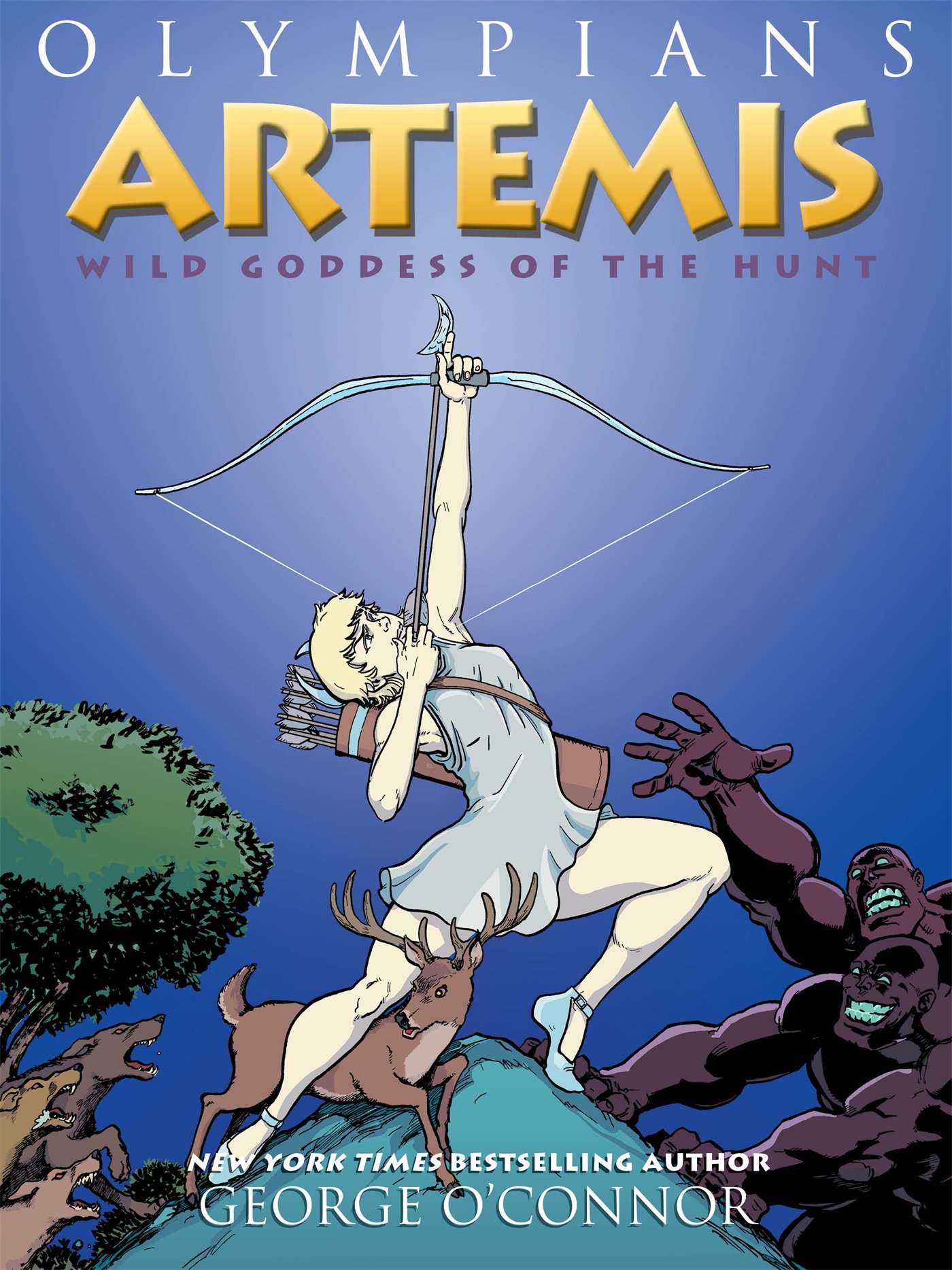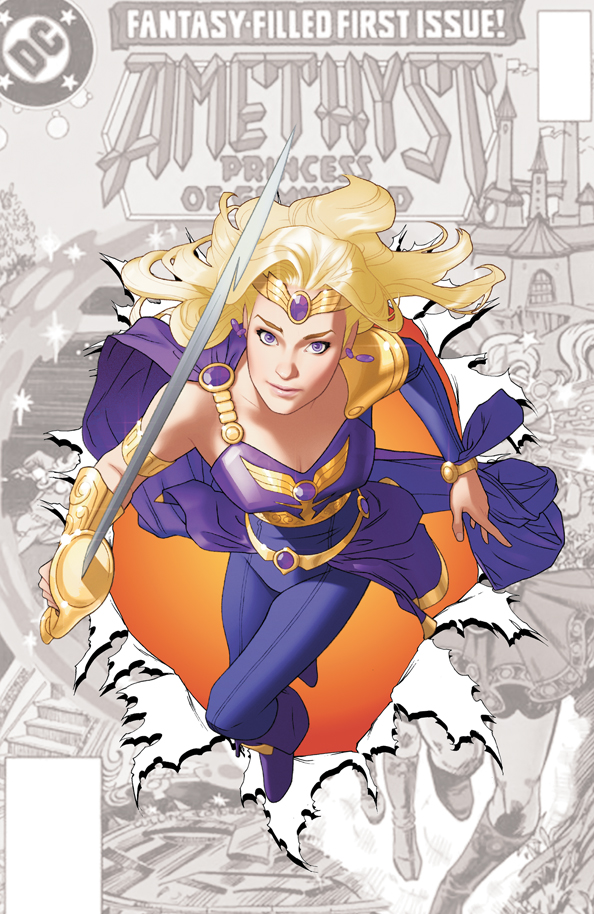The ninth volume of the Olympians series hunts down Artemis, the twin sister of Apollo. Like her younger brother, she has many names; protector of women, friend to young girls, helper in childbirth, and most notably, goddess of the wilderness. Also like her brother, she can be cruel and does not suffer a fool, but unlike Apollo, she knows who she is and what she wants.
Artemis’ story is told mostly through others. As she says to the Hunter Orion, “Sometimes to tell your own thoughts, you need to tell the story of another.” Leto, Artemis’ mother, starts by telling of Artemis’ birth and meeting her father Zeus in Olympus. Apollo picks up the narrative with the tale of Niobe, a human who spurs Artemis, Apollo and Leto. Two of Artemis’ handmaiden nymphs tell of Actaeon, a hunter who is in the wrong place at the wrong time. Even Hera, who hates Leto and her children, shows Artemis some respect in the story of the Aloadai. Finally Orion, the hunter, tells the story of his encounter with Artemis, which ends with Artemis “telling her own thoughts” through Orion’s end.
Through each story, the teller shows their feelings about Artemis. Leto expresses the gratitude and sadness she feels for her daughter having to grow up too soon, and choosing a path based on that experience. Apollo’s story reflects how alike he and Artemis are, especially when it comes to the mother. The handmaidens’ tale is more of a cautionary one, that shows she not one to be crossed. Hera finds Zeus’ offspring can have their uses, as Artemis takes matters into her own hands to deal with the Aloadai, which ends up benefiting Hera. I do like how she finds both respect and annoyance in the dirty looks Artemis shoots her way. Orion shows the opposite of Hera, as he claims to respect Artemis, but his actions, and inability to defer to her choices, leads to his end.
I liked how O’Connor ended the volume, giving Artemis agency over the choice she makes regarding Orion. While Apollo pats himself on the back for his “trick”, Artemis is truly the one who makes the decision. While most of the goddesses we’ve seen in this series have some agency, only Artemis is the one shown to have complete control of her life. She chose her path early and would not be forced from it, not even for love. I think this is important to show today, where women are still pushed into traditional roles of getting married and having children, even when that may not be what they want.
Artemis, Wild Goddess of the Hunt is another great addition to the Olympians collection, and should be read with volume 8, Apollo, the Brilliant One. Even though these books stand on their own, Apollo’s and Artemis’ stories and experiences are so tied together, that it makes a better experience to read them in order. Artemis is a great example of a woman taking control and having agency over her life, and that’s a great lesson for both boys and girls to learn.
Review copy provided by publisher.


